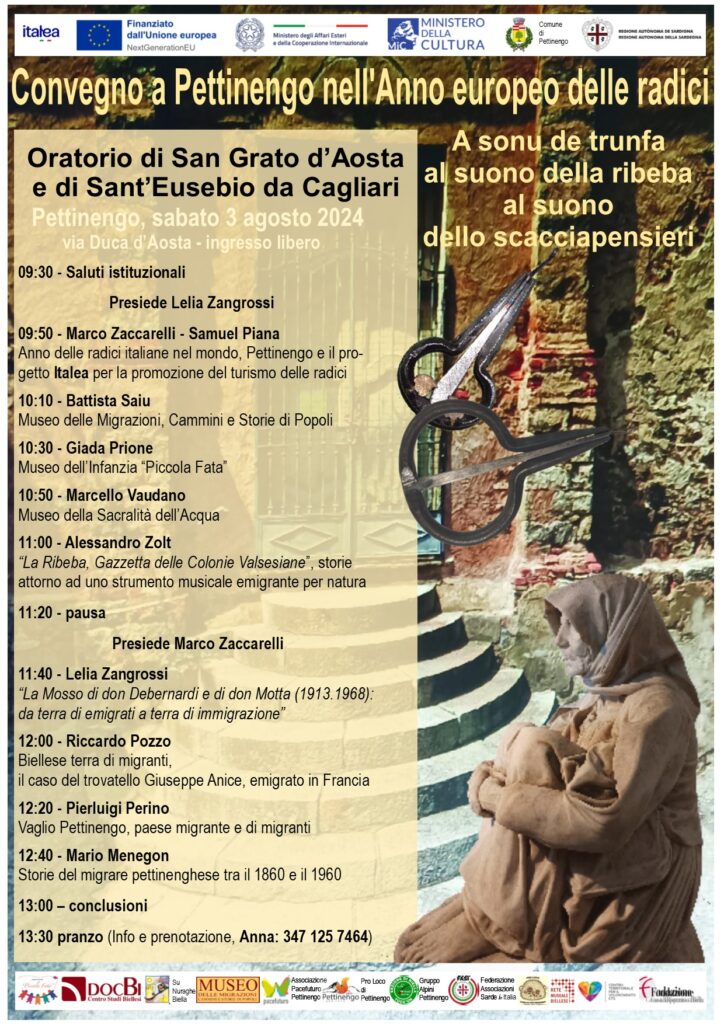Discover
Saturday 3 August, 9:30 am, Conference “A sonu de trunfa, al suono della ribeba, al suono dello scacciapensieri”, on the theme of migration (free admission). The meeting will take place in Canton Gurgo, in via Duca D’Aosta, in the church dedicated to San Grato d’Aosta and Sant’Eusebio da Cagliari, a jewel of Piedmontese Baroque, restored by the Sardinian Club of Biella and donated to the community in collaboration with the associations of Pettinengo.
The harp (ribeba in Piedmontese, trunfa in Sardinian), is a musical instrument widespread all over the world, known by more than 1300 names. It has become an emblem of emigration and local identity, and is characterized by the different materials used for its construction: bamboo in the East, bronze and brass in India, iron and steel in Europe. In Africa, it was introduced with European colonization. Until the early twentieth century, over one and a half million ribebe were produced in Valsesia to be exported all over the world. A newspaper was also printed in Milan, “La Ribeba, gazzetta delle colonie valsesiane”.
Among the speakers at the conference, Marco Zaccarelli and Samuel Piana, The Italea project for the promotion of roots tourism. Battista Saiu, The Museum of Migrations, Paths and Stories of Peoples (the only extraterritorial asset of the Autonomous Region of Sardinia, donated by the family of Gastone Mazzia, a Pettinenghese who emigrated to France). Giada Prione, The Museum of Childhood and the role of “Little Fairy” in the identity of Pettinenghe. Marcello Vaudano, The Museum of the Sacredness of Water (MuSA), project curated by DocBi-Centro Studi Biellesi). Alessandro Zolt, La Ribeba, Gazzetta delle Colonie Valsesiane, stories around a musical instrument that emigrated by nature. Lelia Zangrossi, La Mosso di don Debernardi e di don Motta (1913 – 1968): da terra di emigrati a terra di immigrazione. Riccardo Pozzo, a land of migrants from Biella, the case of the foundling Giuseppe Anice, who emigrated to France. Pierluigi Perino, Vaglio Pettinengo, migrant and migrant country. Mario Menegon, Stories of the migration of Pettinenghese between 1860 and 1960.
Days
03 August 24
03 August 24
Timetable
09:30 - 13:30
Information/To know
Suitable for Everybody
Wheelchair accessible
Location/The place
Address
Via Duca D'Aosta, Livera, Pettinengo BI, Italia
How to get there
By car: Depart from your current location and head towards Biella. From Biella, follow the road signs to Pettinengo. By train: Take a train to Biella, the closest town to Pettinengo with a train station. From Biella, you can continue by bus or taxi to Pettinengo. By bus: Check if there are any bus lines that connect your city to Biella. From Biella, take a local bus or taxi to Pettinengo.
